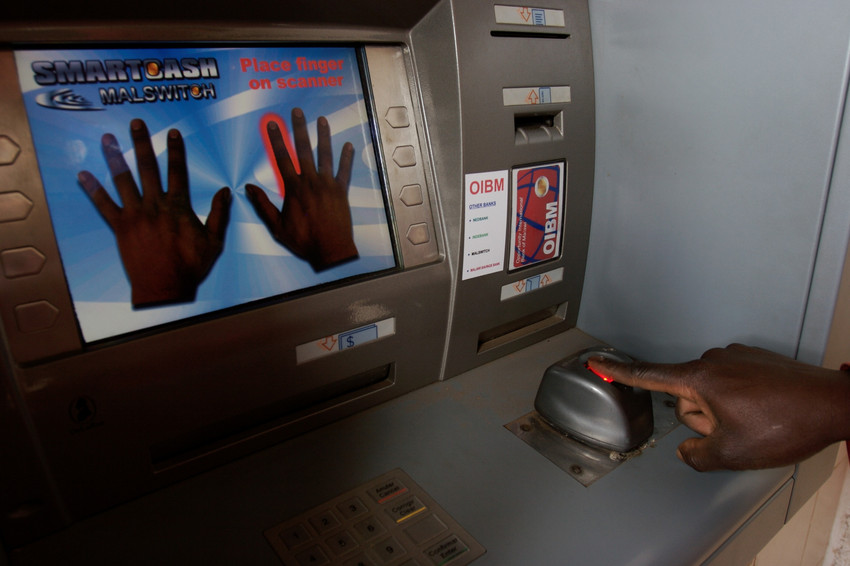By Mabel Ekeke
It is perhaps safe to adopt the working definition for the term “Fintech” (a contraction for the phrase financial technology) since it is not susceptible to a universally accepted definition.
Yoshihiro Kawai, General Secretary of the International Association of Insurance Supervisors and member of the Financial Stability Board defines fintech as “a technologically-enabled financial innovation… giving rise to new business models, applications, processes and products … [which] have a material effect on financial markets and institutions and the provision of financial services”.
This working definition is adopted in this article.
Evolution of fintech

The term is also used to describe companies that combine financial services with modern, innovative technologies. In a sense, fintech is viewed as a recent marriage of financial services and information technology. This is in fact not accurate, owing to the long history between finance and technology.
For instance, the telegraph, a device that utilised electric impulses to transmit encoded messages over a wire used for long distance communication, was introduced in 1838 for commercial purposes. Likewise, the laying of the first successful transatlantic cable in 1866 provided the fundamental infrastructure for the first major period of financial globalisation in the 19th Century.
The advent of the Automatic Teller Machine (ATM) in 1967 by Barclays Bank arguably marks the commencement of the modern evolution of today’s fintech. It is for this reason that some writers opine that fintech is a new term for an old relationship.
The object of this article is not to dwell on the link between technology and financial services. However, it suffices to note that in Nigeria, the delivery of financial services has evolved through different eras and improved immensely due to technological interventions in banking operations.
In the past, not too distant, the banks handed out tally numbers to customers who waited their turns, hours unending to perform simple banking transactions like deposits and withdrawals. Today all that is history with the use of debit cards, internet and mobile banking.
Disruptions
The innovations in the fintech ecosystem have drastically enhanced and improved the delivery of financial services. It disrupted, while offering internet-based and application oriented products that are user friendly, efficient and automated which have attracted more users than the traditional financial services.
The industry can be classified into five major groups based on the nature of services or solutions provided.
- financing and asset management e.g. crowd funding, P2P (peer to peer) lending, robo-advisory services, social trading, personal finance management;
- operations and risk management;
- payments solutions and infrastructure e.g. M-Pesa, e-Wallets or cyber wallet;
- data security and monetisation; and
- customer interface. Other fintech solutions include blockchain and crypto-currencies.
Risk & regulatory concerns

The Global Financial Crisis (GFC) of 2008 was a watershed in the regulation of the global financial industry. It led to stricter regulations for financial institutions. However, due to the non-traditional business models or financial products offered by fintechs, the existing financial regulations do not contemplate these products and services.
Therefore, we do not have a comprehensive tailored regulatory regime for Fintech. In March 2018, United States Government Accountability Office (GAO) pointed out that fintech products and services generally pose risks that are similar, if not greater than those posed by the traditional banking products, which may not be sufficiently addressed by existing laws.
Likewise, the issues surrounding privacy, data/cyber security heightened the risk and special concerns regarding the use of virtual currency in transactions. Token sales and initial coin offers (ICOs) also pose significant risk to investors and remain outside the regulatory framework securities.
Different regulatory approaches
It is hard to discuss “Fintech Regulations” because of the broadness of the sector hence the discussions centre on the approach adopted by various jurisdictions. The UK and US governments adopt different approaches i.e. a functional and risk based approach respectively in regulating fintech.
August 2014, the UK Government announced its ambition to make the UK the “global capital for fintech”. Consistent with its plan, a Fintech Census was conducted and 24% of responses revealed that regulatory compliance was one of the principal challenges for fintech, particularly, the lack of familiarity with the financial services regulatory landscape, and the difficulties encountered with meeting or satisfying the regulatory requirements.
Consequently, the Financial Conduct Authority (“FCA”) launched two flagship projects to help fintechs comply with financial services regulations (a) the Innovation Hub which helps fintechs understand the regulatory framework; (b) the Regulatory Sandbox, launched in May 2016 to help innovative fintech businesses develop compliant prototype products, an important step towards reducing the regulatory burden on new firms.
A regulatory sandbox is a limited test ground/environment for new business models that are not protected by existing regulations or supervised by agencies. They allow fintech companies to test ideas/products or services on a small scale in a controlled environment, and reduce time to market at lower cost without the requirement to comply with all otherwise applicable laws.
With all the policies and strategies in place, there is a broad consensus amongst experts that the UK has the strongest Fintech Policy environment with the most supportive regulatory regime for fintechs. The Fintech Sector Strategy (PDF) shows the roadmap of how the UK is preserving and extending its international edge in fintech.
On the contrary, the US regulators took a piecemeal, risk-based approach, opting to apply existing frameworks and at other times responding incrementally to technological developments creating a patchwork of laws and regulations for fintechs to navigate.
How are fintechs regulated in Nigeria?
In Nigeria, the regulators tend to fall back on existing legislations that are applicable to financial institutions although some efforts have been made to issue regulations specific to the fintech space. This in and of it self creates its own set of challenges for fintechs.
For instance, the Banking and other Financial Institutions Act (BOFIA) is one of such existing legislations that regulate the banks and financial institutions. The BOFIA does not contemplate fintechs offering the nature of services they currently offer without a licence to operate as a bank or other financial institutions designated by the Central Bank of Nigeria (CBN).
Hence, the CBN in 2009 issued a Guideline on Mobile Money Services in Nigeria. Under the guideline, corporate organisations other than banks, to the exclusion of telecommunication companies can offer mobile money services. However, the guideline has a very limited scope and does not cover other forms of financial services, which fintechs provide. The CBN National Financial Inclusion Strategy also lends credence to the dearth of regulations for fintechs in Nigeria.
In 2012, CBN defined a financial inclusion strategy for Nigeria. Statistics revealed that only 2% of Nigerian adults had access to credit, 21.6% to payment services and 24.0% to savings accounts. Therefore, the purpose for defining the strategy was to create a roadmap that would ensure an increase in the use and access to financial services by the year 2020.
In July 2018, the CBN released an Exposure Draft of the National Financial Inclusion Strategy Refresh. In the document, one of the identified reasons why Nigeria failed to meet its 2012 financial inclusion strategy was the lack of an appropriately regulated level playing field that supports fintechs.
In the document it was noted that “variety of innovators and innovative models, which in other countries have contributed in inclusion have not been able to come to full fruition as the existing policies and regulations do not allow for their engagement”.
This implies fintechs are extremely relevant for effective financial inclusion as seen in other climes. They bridge the gap and offer financial services at affordable cost to more individuals (unbanked inclusive) and businesses, irrespective of their net worth and size and that is really what financial inclusion seeks to achieve. More importantly, a sound, cohesive and consistent regulatory framework contributes to the development of the fintech ecosystem.
In Kenya for example, M-Pesa reached 80% of the households in four years. It is the most successful story in Africa for mobile money services, offered by Safaricom and launched in 2007 by Vodafone. The use of mobile money was initially pioneered in Philippines but it is said to have achieved its greatest success in Kenya and more recently in Tanzania. For M-Pesa, in less than five years, payments made through the platform exceeded 43% of Kenya’s GDP.
In conclusion, this article advocates for a regulatory approach or regime that is conducive for fintech like in the UK and Kenya. It is noted that in April 2018 CBN signed an MOU with the Nigerian Communications Commission on digital payment system; and issued the Regulatory Framework for the Use of Unstructured Supplementary Service Data (USSD) For Financial Services in Nigeria.
The CBN also collaborated with the Nigeria Inter-Bank Settlement System (NIBSS) to create a regulatory sandbox that will allow fintechs to test solutions in a controlled environment. However, it is worth considering why the guidelines for mobile money services in Nigeria still excludes telecommunication companies in light of the economic developments and financial inclusion that occurs when telcos offer mobile money services.










